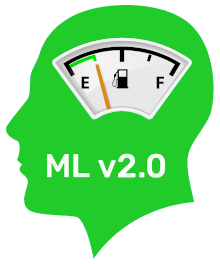To keep things simple and sound, and to not drift further into the world of out-thereness (which I love to do at times), I’ve now broken down the Human Mind-Brain Combo into two types of people that cover this planet. And yes, I understand there are numerous books telling stories and categorising many different behaviours and traits into reasons and labels, etc. But I’m stepping back into the parent directory and dealing with the one broader, more relatable scope.
Conventions (or the finer well-known details) can stick to the professionals or to those minds who are better equipped to know these ‘ins’ and ‘outs’.
Our two classes divide into the Majority (90%) & Minority (10%).
- The Majority/General Mind or ‘The Herd’ who cover roughly 90% of people. These people are also known as the everyday folk. Plus, I’ve included the less-sensitive or narrow-minded in this group, until there is the need to divide two into three.
- The Highly Sensitive Mind who make up the minority in the other 10% of people. These people are known as the ‘slightly out-there folks’ or ‘misfits’ who tend to experience more behavioural problems when growing up. Yet they may also show signs of exceptional talent in a concentrated area or two.
Every so often nature slaps the current arrangement with a sizeable challenge, and it produces a Highly Sensitive Person who struggles with basic black-and-white integration as their mind gets overwhelmed by everyday stimuli. On the other hand, they can sense (or naturally pick up), and potentially translate information from a Greater Range or Broader Field of Reality that would otherwise go unseen or unfelt by the majority class of people.
The broader field is a less visible range of stimuli on life’s spectrum, or a less noticeable wavelength permeating throughout existence. Perhaps comparing meta-information or ‘information about information’ to this is the way to better understand this phenomenon. Most people only focus on a thing or piece of information directly in front of them, whereas a few of us can’t help but sense beyond the thing or piece of information that is in plain sight, or on something else altogether, until the experience makes greater sense from all the hidden question marks. Thus, we go a layer or two beyond the object, or any typical expectation that an experience may bring us, by letting our minds wander into the composition of surrounding things. We often find things either very intriguing or not intriguing at all.
Many cultures label people who are successful in translating things beyond sight a ‘Medium’, but it usually comes with a lot of stigma or superstition about dead people who live on. And I’m not talking about that here. If anything, a ‘Medium’ is simply a bridge between sensory systems aligned differently.
Highly Sensitive Chaos
In an untamed space earlier in my life, my day-to-day behaviour often got weighed down by an addiction to mental intrigue repeating over and over. This excess background noise would eventually turn to boredom and hinder my ability to translate upcoming information into a clear message, so I was stuck with static or Raw Static. You see, when your mind is sensitive and immature, it’s very easy to latch on to stimulating thoughts and fall into a distractive habit, as a way to remedy any internal overload causing stress. It’s difficult to learn and eventually pick up wholesome patterns with guidance from the broader field when attentive energy is always consumed by dopamine-packed information which altered my baseline. Thus, the background eventually overtakes the foreground while the foreground slips into the background, and a destructive narrative gains ground from stimulating or controlling thoughts arising.
All up, this oversensitivity both limited my options in life AND placed a higher demand on the surrounding Herd. This is why a Mindware Update like this could help others in the same way it has with me.

Explaining the Mind-Brain Combo
Today, I see the Brain and Mind as one complex. But if I were to break it down, the brain is the physical manifestation and the mind is the multidimensional aspect. In this way, non-physical information layers in with the physical side, and vice versa.
Science says that the brain creates consciousness. While Religion and Spirituality say the opposite. But I’m not fussed either way, so long as my surface contents get emptied at the start and end of each day. And that 90% of anything else can also get dumped during the day. I truly love living the emptied Mindless 2.0 way!

